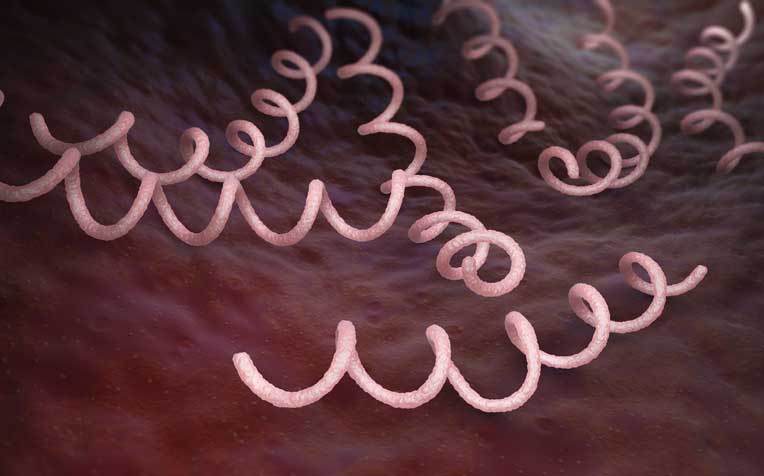
Syphilis is a bacterial infection usually spread through direct contact with syphilis sores on the body of an infected person.
A treatable infection, syphilis is characterised by painless sores in its early stages
Syphilis is a bacterial infection usually spread through direct contact with syphilis sores (ulcers) on the body of an infected person carrying the bacterium Treponema pallidum. "The painless sores usually develop on the external genitals, vagina, anus, lips and tongue, and can show up anytime from 10 to 90 days later," say doctors from KK Women's and Children's Hospital, a member of the SingHealth group.
Signs & symptoms of syphilis
According to the Health Promotion Board, Singapore, the signs and symptoms of syphilis vary depending on the stage of infection:
- Primary stage
Painless, firm and small sores that last 3-6 weeks within the first or primary stage. These usually appear at the location where the bacterium entered the body and typically heal without treatment.
- Secondary stage
-
The appearance of a rough, reddish brown rash on one or more areas of the body, including the palms and the soles. Other symptoms may include fever, swollen lymph glands, sore throat, patchy hair loss, headaches, weight loss, muscle aches, and fatigue.
- Latent stage
If secondary syphilis is left untreated, the infection remains dormant in the body, sometimes for years.
- Late stage
In the late stages of syphilis, the disease may have damaged vital organs of the body such as the heart, blood vessels, brain, nerves, eyes, liver, bones and joints. Complications such as meningitis, stroke, dementia and heart disease may occur, with serious consequences, even death.
Other complications of syphilis
Syphilis sufferers have a greater risk of HIV infection because of the existence of open sores. An infected mother may pass the infection to her unborn baby during pregnancy, causing birth defects such as mental retardation or seizures, and is also at higher risk of miscarriage, stillbirth and premature birth.
Treating syphilis
Syphilis is treated with antibiotics, and is especially successfully treated in its early stages.
Ref: U11
Contributed by
Related Articles
Public Events
Get the Health Buddy App
© 2025 SingHealth Group. All Rights Reserved.

















 Get it on Google Play
Get it on Google Play